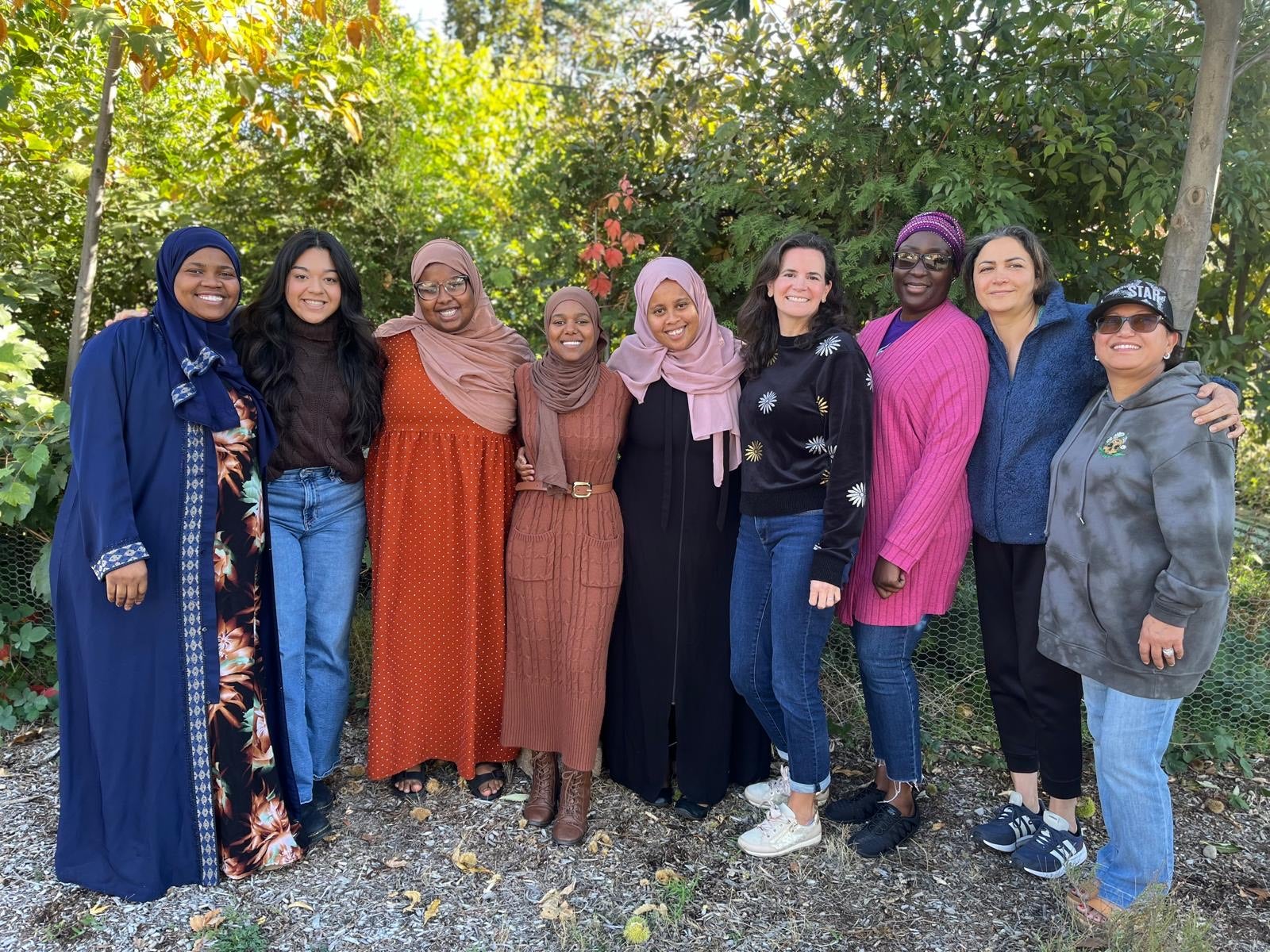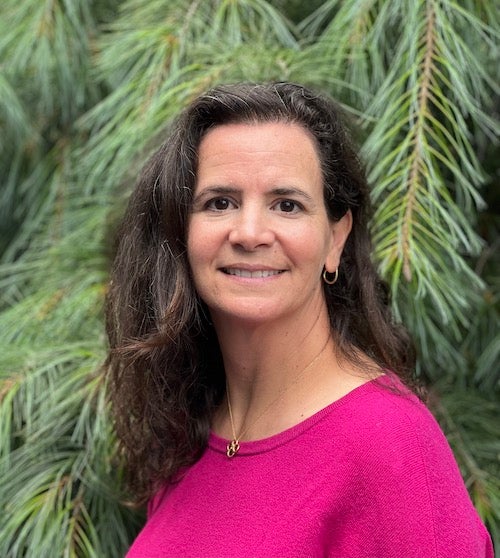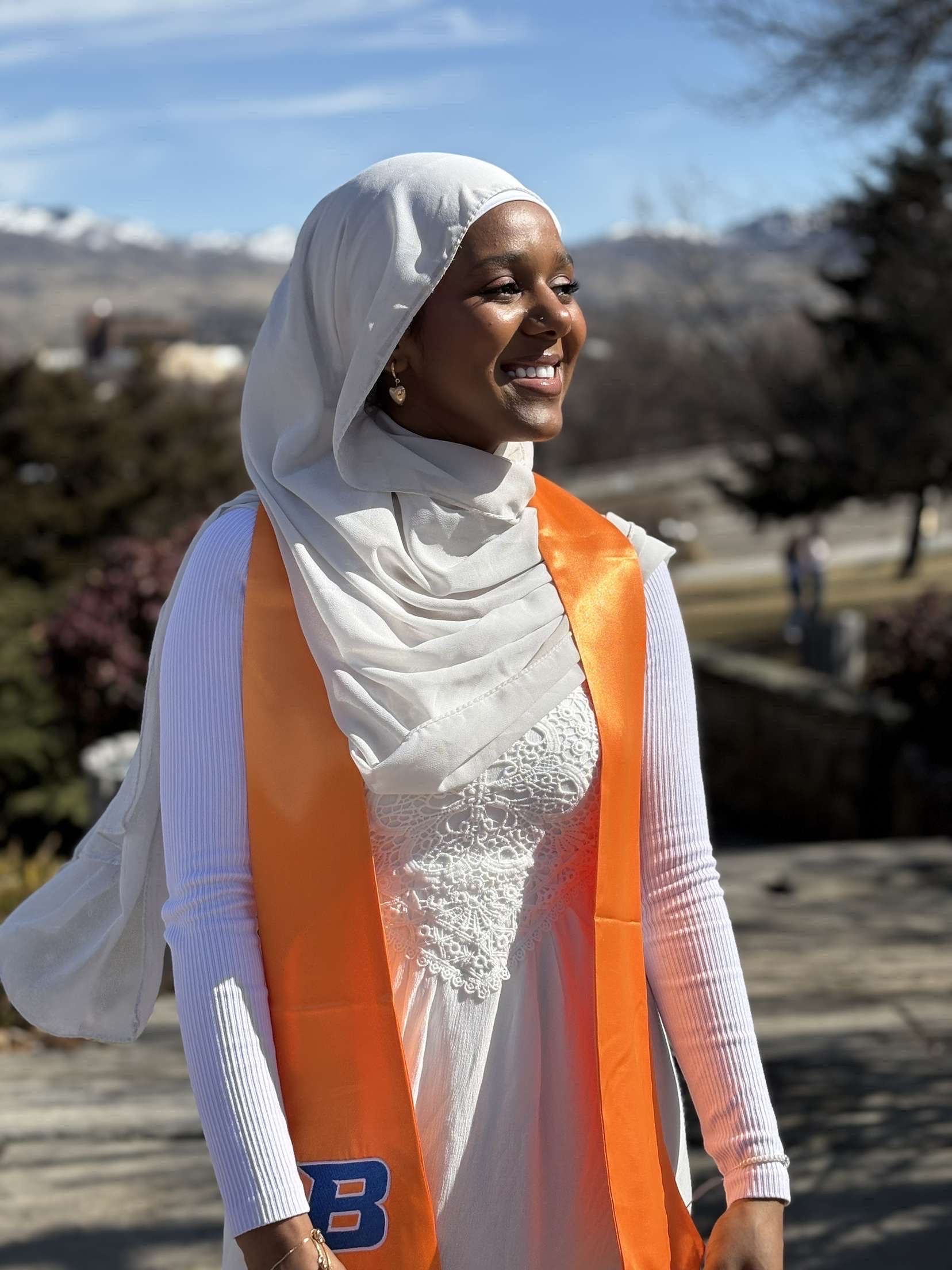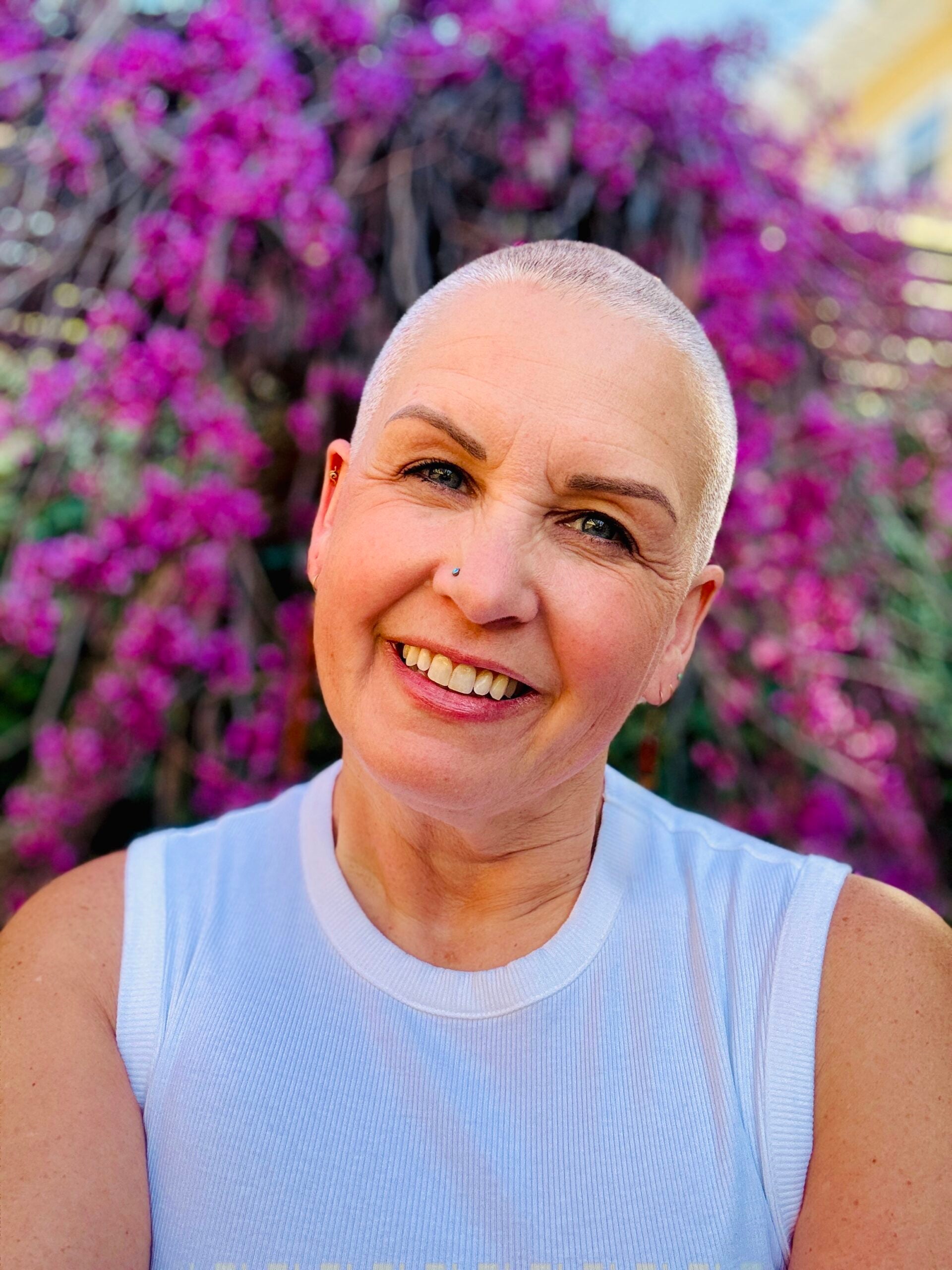
“Sunny and Sadia were probably 1% of the 5,000 people that attended the conference that didn’t have a graduate degree. The majority of people are PhD prepared or MDs. So here they are as undergraduate social work students, honestly carrying their own, and they were just phenomenal. So well spoken, so able to deeply discuss the content of our podium presentation. We had 45 minutes worth of questions afterwards and as undergraduates, they just stood out ”
This is Kate Doyon, nursing associate professor, speaking of the two senior social work students in her research team following the 2025 Annual Assembly of Hospice and Palliative Medicine: Sunny Smart and Sadia Abdulkadir. The pride in her voice is unmistakable.
Doyon, Smart, Abdulkadir and nursing research assistants Alice Mwamba, Busola Oluwatoba-Adeyemi and Hannya Ornelas are an interdisciplinary Boise State team working to promote and study the nuances of palliative care, particularly as it relates to resettled refugee patients.
Palliative care is a form of supportive, holistic care for patients with serious illness such as heart failure or cancer and is offered in combination with curative care. It is often misconstrued as hospice care.

“Palliative care comes in after the bad news was given and says, ‘Okay, now what can we do to give you the best quality of life, what is important to you? Is your pain under control? Is there one last thing you want to do like go fishing or make it to a grandson’s graduation?’” Doyon said.
This intrinsically interdisciplinary form of care relies on the cohesion of medical caregivers, therapists, chaplains, nurses, physicians, social workers and more. That’s why Doyon and her uniquely gifted students form such a powerful team.
Abdulkadir was born in Kenya and resettled in Boise as a refugee when she was four years old. She considers Boise to be her hometown, and actively serves the local resettled community. Smart is a non-traditional student with four young-adult children who also calls Boise home. She is 50 years old, and loves the wide range of ages in her classes, and how they keep her “thinking and challenging herself.”
As seniors in the social work program, Abdulkadir and Smart have had a very close educational and personal trajectory, and both are eager to graduate with their bachelors in May 2025 before beginning the master’s program in social work at Boise State.

Together, the team works with a community advisory board to gather wide-ranging perspectives of how resettled refugees view palliative care. Their research involves studying the nuances of palliative care with the added challenges of language translation, the cultural significance of caregiving, dying and more. This two-year project culminated in a communication guide that included four communication prompts aimed to help create a trusting relationship between the healthcare team and patients.
Sharing their research and these prompts at the Annual Assembly of Hospice and Palliative Medicine was an important milestone for the team. It was also a re-affirming moment for both Smart and Abdulkadir as they take the next steps in their educational careers as social workers.

“To me, social work means taking that holistic approach on things and just meeting people where they’re at, but also recognizing that there may be systems that have failed people, whether it’s their family system or there are bigger systems that play a role in it. Making sure people are given not just the same resource or thing but given what they need for their own needs,” Abdulkadir said. “Thinking about social work, I find it so easy to connect with palliative care. It’s honestly just ensuring that dignity, comfort and emotional support is there for both patients, their families and people around them.”
“I came to social work by way of thinking I was going to be a nurse practitioner,” Smart said. “I then realized pretty quickly that I love medicine but what I love more is advocacy. If I was a practitioner, I’d have time to treat patients, but I wouldn’t have time to advocate to make sure all of their needs were getting met. I found social work and I have loved it from the first textbook I opened. I want to work in palliative care, more specifically with populations who have been displaced and or resettled.”
Abdulkadir and Smart will conclude their undergraduate experience soon, but for Doyon, their impact will be long-lasting.
“They are social work students and I’m in nursing. They taught me how social workers approach a problem, how social workers look at tasks, patients and their resources differently than we are trained to as nurses. They haven’t graduated yet and they’re already expanding their impact,” Doyon said.